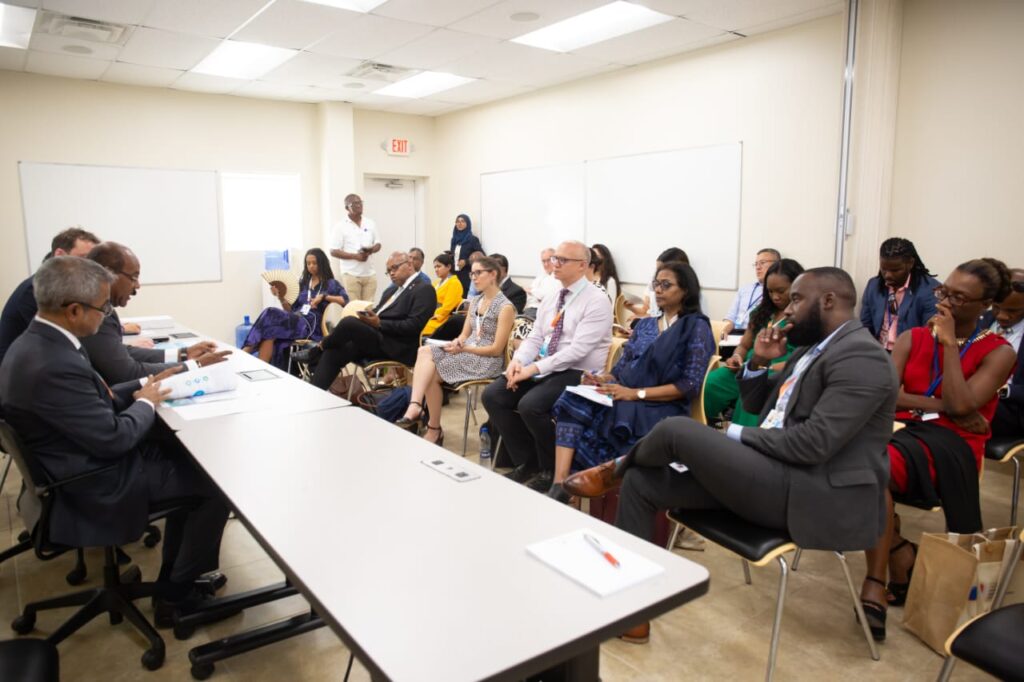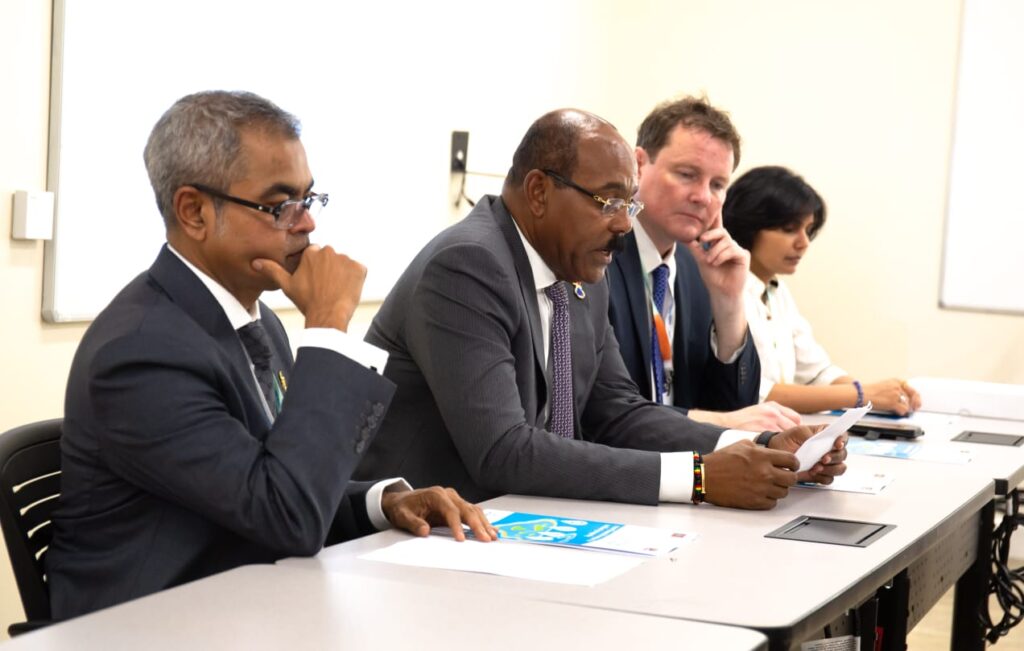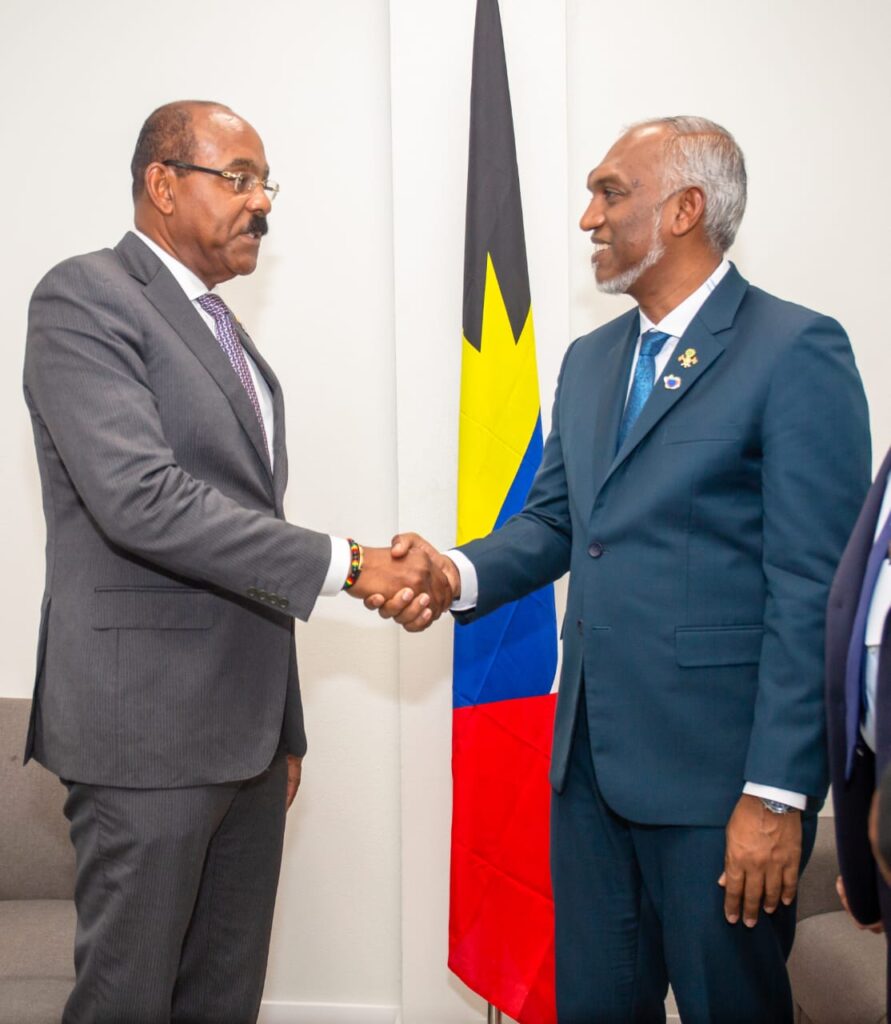The historic Debt Sustainability Support Service (DSSS) was launched to alleviate the crippling levels of debt plaguing Small Island Developing States (SIDS) around the world.
The DSSS was launched this week during the Fourth International Conference on Small Island Developing States (SIDS4) in Antigua and Barbuda.
This new plan, designed by the Prime Minister of Antigua and Barbuda Gaston Browne and President of the Republic of the Maldives Dr. Mohamed Muizzu, also seeks to build economic resilience among SIDS.
Prime Minister Browne emphasized that the support service will provide strategic advice on breaking the cycle of debt and options for SIDS to seek new investment opportunities in climate-resilient infrastructure.

“Resilient prosperity is crucial within the next decade with the adaptation of ABAS (Antigua and Barbuda Agenda for SIDS). This launch signifies a collective resolve to combat climate change and debt. It will pave the way to provide better lending terms for SIDS. This is a matter for our survival and our sovereignty,” Prime Minister Browne said.
He explained that the DSSS will call for the reform of the international financial architecture to deliver innovative bespoke financing that goes beyond traditional concessional financing.
“The DSSS will include debt for climate swaps, insurance instruments, SDRs, green and blue bonds and leveraging of public-private partnerships to fulfil the potential in supporting our sustainable development goals. The adoption and use of the Multidimensional Vulnerability Index will also be critical to assist middle and high-income SIDS to access much-needed concessional financing and grants, especially during periods of crises,” he added.

The service will recognize the social, economic, legal and environmental challenges affecting SIDS while focusing on four key pillars. These include a multi-layered approach to debt, the protection against future economic threats, fostering climate-resilient infrastructure investment and the provision of expert advisory and legal support. The latter will provide SIDS with the capacity to adequately navigate international debt and finance negotiations, otherwise unreachable due to various disadvantages.
Speaking on behalf of the Republic of the Maldives, the country’s Minister of Environment, Climate Change and Energy Thoriq Ibrahim said the plan comes at a crucial juncture for small island nations. He added that the climate crisis and associated external shocks are heavy burdens for SIDS. He further indicated that the new plan of service is a monumental step towards addressing debt challenges.

“The SIDS represent approximately 1% of the world’s population. However, these countries are at the forefront of multiple global crises, notably climate change,” he said.
For example, The Bahamas suffered $3.4 billion in losses following Hurricane Dorian which devastated the islands of Abaco and Grand Bahama in 2019.
Moving ahead, it is anticipated that the next stage of the plan involves the meeting of SIDS leaders to decide on the best way to establish the service in individual countries.
The plan was co-designed with the assistance of the International Institute for Environment and Development (IIED), in close consultation with a panel of world leaders and industry representatives.
—
This story was originally published by the Bahama Journal and is re-published with permission. It was written by Deandre Williamson, an alum fellow of our Caribbean Climate Justice Journalism Fellowship.